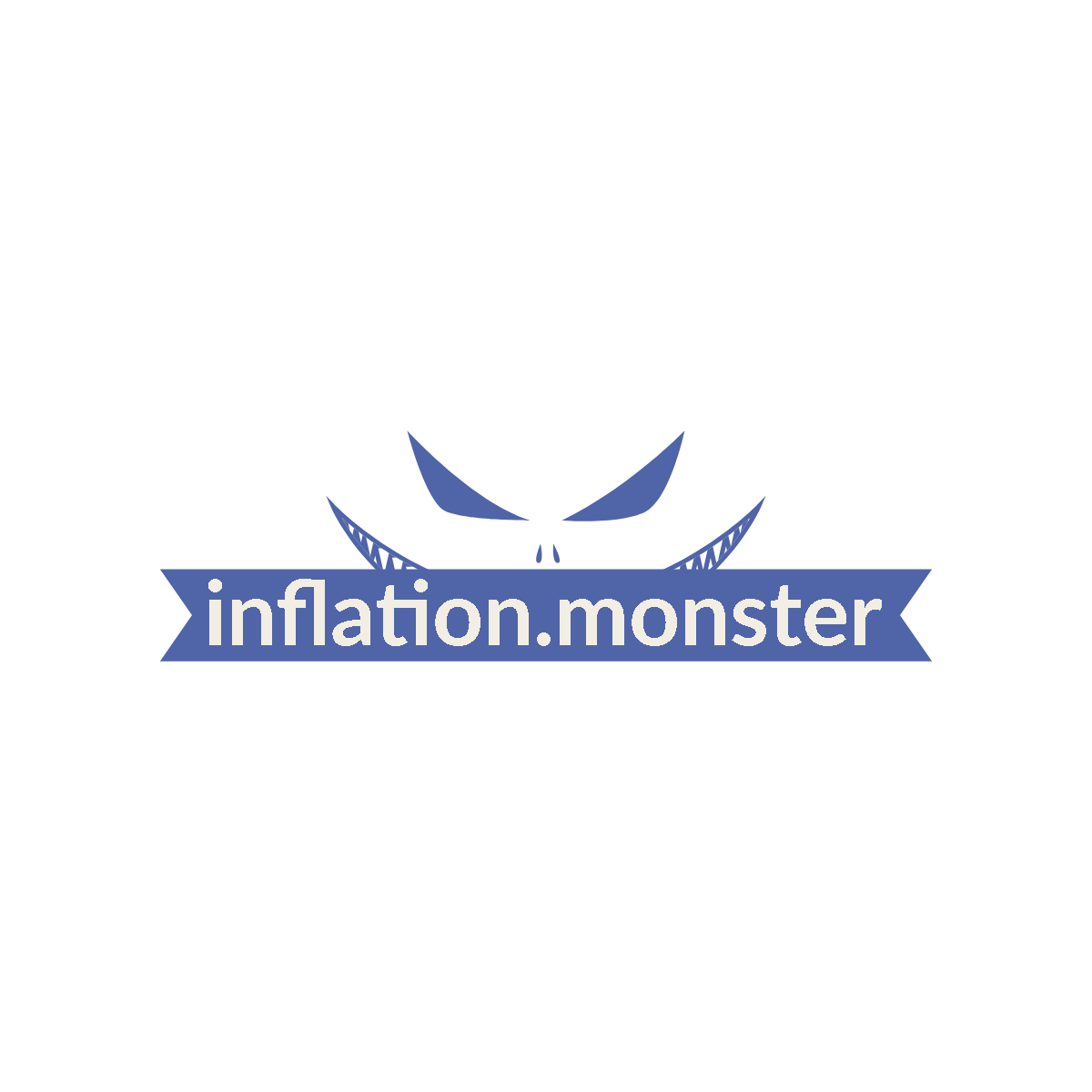In the world of economics, inflation is a monster lurking in our financial landscape, ready to wreak havoc on our money and wealth. Its impact is felt far and wide, affecting individuals, businesses, and even governments. But amidst the chaos and uncertainty, there is a fascinating aspect to inflation that often goes overlooked – its role in wealth redistribution. In this article, we will explore the connection between inflation and wealth redistribution, shedding light on how this economic phenomenon can reshape the distribution of wealth in society. Join us as we navigate the complex realm of inflation and uncover the secrets behind its impact on our financial well-being.

Overview of Inflation and Wealth Redistribution
Inflation is a term that we often hear in discussions about the economy and financial markets. But what exactly does it mean? In simple terms, inflation refers to the increase in the general level of prices for goods and services in an economy over a period of time. This means that as inflation rises, the purchasing power of our money declines.
Understanding inflation is crucial when it comes to analyzing its impact on wealth redistribution. Wealth redistribution refers to the shifting of resources, both financial and non-financial, from one group of individuals to another. In the context of inflation, it refers to the redistribution of wealth that occurs as a result of changes in the value of money and the effects this has on various aspects of the economy.
Causes of Inflation
There are several primary causes of inflation, each leading to differing effects on wealth redistribution. The first cause is demand-pull inflation, which occurs when there is excess demand for goods and services in the economy. This puts upward pressure on prices as businesses raise prices to match the increased demand. As a result, wealth can be redistributed from individuals who have limited purchasing power to those who can afford the higher prices.
Cost-push inflation, on the other hand, occurs when there is an increase in production costs, such as wages and raw materials. This causes businesses to raise prices to maintain their profit margins. Cost-push inflation can lead to a redistribution of wealth from consumers to producers as prices rise, potentially impacting income distribution and exacerbating income inequality.
The third cause of inflation is built-in inflation, which is caused by expectations of future price increases. As individuals and businesses anticipate higher prices, they negotiate higher wages and increase the prices of goods and services. This self-reinforcing cycle can lead to an ongoing redistribution of wealth as prices and wages continue to rise.
Effects of Inflation on Wealth Redistribution
Inflation has a significant impact on wealth redistribution, primarily through its effect on the value of money. As the value of money declines, individuals with fixed incomes or savings will experience a reduction in their purchasing power. This can lead to a redistribution of wealth from savers to borrowers, as the real value of debt decreases while the nominal value remains the same.
Inflation also affects income distribution within society. Inflation tends to impact individuals with lower incomes more severely, as they spend a larger proportion of their income on essential goods and services. This can exacerbate income inequality and result in a redistribution of wealth from lower-income individuals to those who have higher incomes and can better absorb the impact of price increases.
Furthermore, inflation can have a significant impact on savings and investments. When inflation is high, the returns on savings and investments may fail to keep up with the increase in prices. This can erode the value of these assets over time, leading to wealth redistribution from savers and investors to borrowers and those who hold assets that appreciate in value during inflationary periods.
The Role of Government in Wealth Redistribution
Governments play a crucial role in wealth redistribution, including addressing the effects of inflation. One of the key ways governments can impact wealth redistribution is through taxation policies. Progressive taxation systems, where higher-income individuals pay a higher proportion of their income in taxes, can help redistribute wealth from the rich to the poor. By using tax revenues to fund social welfare programs, governments can further address income inequality and lessen the burden of inflation on lower-income individuals.
Social welfare programs, such as unemployment benefits, housing assistance, and healthcare subsidies, can provide a safety net for individuals who may be disproportionately affected by inflation. These programs can help mitigate the impact of rising prices on lower-income individuals and redistribute wealth through financial assistance and access to essential services.
Minimum wage laws also play a role in wealth redistribution. By setting a minimum wage, governments can ensure that workers are paid a fair wage that keeps pace with inflation. This can prevent the erosion of purchasing power for low-wage workers and help redistribute wealth by increasing their disposable income.

Inflation and Income Inequality
Inflation can have differing impacts on the rich and the poor, ultimately contributing to income inequality. For the rich, inflation can be seen as a wealth-preserving tool. As the value of their assets, such as real estate or stocks, increases during inflationary periods, they can maintain or even grow their wealth. The wealthy also have more flexibility in adjusting their investments and financial strategies to mitigate the impact of inflation.
On the other hand, the poor are generally more vulnerable to the effects of inflation. Individuals with lower incomes typically spend a larger proportion of their earnings on essential goods and services, leaving them less room to absorb the impact of rising prices. As a result, inflation can erode the purchasing power of their income, exacerbating income inequality and leading to a further concentration of wealth among the rich.
Inflation can widen the wealth gap by redistributing wealth from lower-income individuals to those who hold assets that appreciate in value during inflationary periods. This further reinforces existing inequalities and can make upward mobility more challenging for individuals at the bottom of the income distribution.
Inflation and Asset Redistribution
Inflation can also have a significant impact on asset prices, leading to wealth redistribution through changes in the value of real estate and stocks. During inflationary periods, the value of real estate tends to rise as the cost of construction materials and labor increases. This can lead to a redistribution of wealth, with property owners benefiting from the appreciation in the value of their assets.
Similarly, the stock market can be affected by inflation. While some stocks may suffer due to rising production costs, others, such as companies that produce essential goods or have pricing power, may see their stock prices increase during inflationary periods. This can result in a transfer of wealth from stock market participants who may not have adequately hedged against inflation to those who hold stocks that appreciate in value.
Inflation also has implications for intergenerational wealth transfer. If inflation erodes the value of money over time, individuals who strategically invest in inflation-hedged assets can pass on greater wealth to future generations. Conversely, those who fail to protect their wealth from inflation may see its value diminish over time, resulting in a potential redistribution of wealth between generations.

Inflation and Financial Instruments
Various financial instruments are affected differently by inflation, playing a key role in wealth redistribution during inflationary periods. Fixed-income securities, such as bonds, can experience a decline in value as inflation erodes the purchasing power of their fixed interest and principal payments. This can redistribute wealth from bondholders to borrowers, further exacerbating income inequality and wealth concentration.
Loans and mortgages are also impacted by inflation. For borrowers, inflation can be beneficial as the real value of their debt decreases over time. Conversely, lenders may suffer as the purchasing power of the interest and principal payments they receive diminishes. This can lead to wealth redistribution from lenders to borrowers during inflationary periods.
To mitigate the impact of inflation on wealth redistribution, individuals can consider investing in inflation-protected assets, such as Treasury Inflation-Protected Securities (TIPS). These instruments are indexed to inflation, allowing investors to hedge against the erosion of purchasing power that typically occurs with traditional fixed-income securities.
Mitigating the Impact of Inflation on Wealth Redistribution
While the effects of inflation on wealth redistribution may seem daunting, there are strategies that individuals can employ to mitigate its impact. Indexing wages and benefits to inflation can help ensure that individuals maintain their purchasing power despite rising prices. By adjusting wages and benefits based on changes in the consumer price index, employers can help alleviate the strain caused by inflation and prevent a disproportionate redistribution of wealth.
Diversifying investments is another strategy to consider. By spreading investments across different asset classes, such as stocks, bonds, and real estate, individuals can diversify their risk and potentially offset any losses caused by inflation in one area of their portfolio with gains in another. This can help preserve wealth and minimize the impact of inflation-induced wealth redistribution.
Using inflation-hedging strategies is also essential in mitigating the impact of inflation on wealth redistribution. Investments in assets that historically appreciate in value during inflationary periods, such as commodities or inflation-protected securities, can help investors maintain their purchasing power and preserve wealth. These strategies can help individuals navigate the complex and ever-changing landscape of inflation and its impact on wealth redistribution.
Implications of Inflation and Wealth Redistribution for Individuals
The implications of inflation and wealth redistribution are far-reaching for individuals. It is important for individuals to adjust their financial planning to account for the effects of inflation. This includes considering the impact of inflation on income, savings, and investments when setting financial goals and creating a budget.
Investing in appreciating assets can also help individuals protect and potentially grow their wealth during inflationary periods. Assets such as real estate or stocks that have historically outpaced inflation can serve as a hedge against the erosion of purchasing power. By strategically allocating their investments, individuals can position themselves to benefit from inflation-induced wealth redistribution.
Managing debt is another critical consideration in the face of inflation. Individuals with fixed-rate loans may find that the real value of their debt decreases over time as inflation erodes its purchasing power. This can create an opportunity to pay off loans with inflated currency, effectively reducing the cost of borrowing and potentially further redistributing wealth in their favor.
Conclusion
In conclusion, inflation and wealth redistribution are intrinsically linked. The causes and effects of inflation can lead to significant redistribution of wealth within an economy, impacting individuals at various income levels and the value of their assets. However, individuals can employ strategies such as diversification, indexing, and inflation-hedging to mitigate the effects of inflation on wealth redistribution and protect their financial well-being in the face of rising prices. By understanding the complexities of inflation and its impact on wealth redistribution, individuals can navigate the financial landscape with confidence and make informed decisions to safeguard their financial futures.




